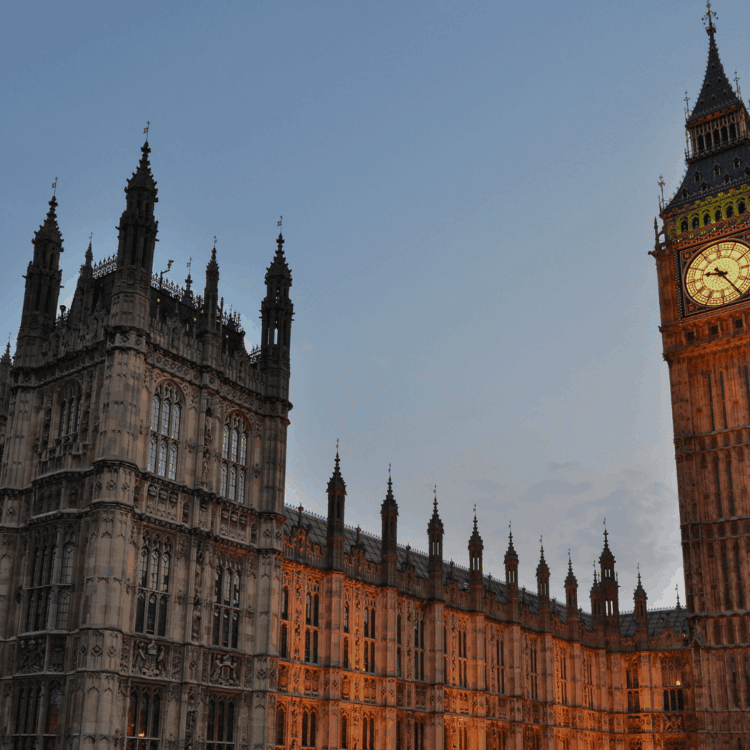
UK Budget 2025: What Investors Need to Know
Chancellor Rachel Reeves is preparing to deliver the UK Budget 2025 this November, a crucial test for Labour’s new economic strategy. With the government facing a significant fiscal gap and increasing pressure to balance investment with discipline, markets, businesses, and investors will be watching closely for clues about the UK’s economic direction.
This isn’t the budget speech the Chancellor was hoping to give. She hoped the UK Budget 2025 would be delivering good news after the tax hikes in 2024, but the last year has been economically challenging, and the country still faces a large fiscal deficit.
The political stakes are high, and the Chancellor needs to raise tax receipts without losing too many votes, so how will she do that?
UK Budget 2025: Tax and Spending – What Might Change
Labour’s “tax lock” still rules out rises in income tax, National Insurance, or VAT, but that leaves other areas open for potential reform.
Speculation continues around possible adjustments to capital gains tax, inheritance tax, and pension tax relief — all of which could have major implications for investors and high-net-worth individuals.
With the Treasury seeking ways to raise revenue without breaking core pledges, wealth planning and tax efficiency will remain key priorities for 2025 for everyone.
Infrastructure, Growth, and the Green Transition
Reeves has signalled her intention to “get Britain building again”, and the 2025 Budget is expected to accelerate investment in infrastructure, housing, and green energy.
Key areas to watch include:
- Expansion of the National Wealth Fund, aimed at crowding in private investment.
- Reforms to planning laws to speed up development.
- Continued support for clean energy and sustainable technology sectors.
For investors, these shifts could open new opportunities in renewables, construction, and tech innovation — but also bring regulatory and market risks as priorities shift toward long-term sustainability.
Borrowing, Debt, and Market Confidence
With borrowing costs still elevated, Reeves faces the challenge of balancing fiscal credibility (whether her tax plans are considered workable by the market) with investment ambition.
Any relaxation of the fiscal rules — even for capital projects — will be scrutinised by markets and the Office for Budget Responsibility (OBR).
Gilt yields, sterling, and equity markets will react quickly to the Budget. If investors believe the government can combine discipline with growth, confidence could strengthen — but any sign of overreach might unsettle markets.
Business Environment: Reform and Competitiveness
The 2025 Budget is also expected to address business investment and competitiveness. Possible areas of focus include:
- Business rates reform to ease pressure on small and medium enterprises.
- Measures to boost productivity and innovation.
- Updates to corporate taxation and employment law to align with Labour’s industrial strategy.
Entrepreneurs and company owners should be alert to how these changes may reshape the business landscape — particularly across manufacturing, tech, and green industries.
Why Bond Markets Hold so much Power
The memory of the 2022 mini-Budget remains fresh. Markets have shown they will not tolerate fiscal indiscipline, and that credibility must be earned, not assumed. But why and how does this market have so much power?
The reason is that the government funds its investments and sometimes its running costs by borrowing money. When a person borrows money from a bank the bank gets a say in your life while you owe them money.
In the same way, when the government borrows money, the people it borrows from have a say. As the UK government can print its own money, in theory, it cannot default on any loans it takes out. However, printing money causes inflation, and so both the market and the government don’t want that to happen.
As a result, when the market buys the government debt, it decides whether it is worth more or less then the government hopes to pay.
Government (and large companies) borrow differently from people. They borrow from many people and organisations at once. They do this by issuing promises to pay (IOUs). For companies (and other nations) these are called Bonds, but in the UK government bonds are called Gilts.
So, the government puts its gilts on the market, and the market decides how much to pay for them.
If it pays more than face value, then that makes government borrowing cheaper. But if it pays less, then that makes government borrowing more expensive. That’s what happened to Liz Truss.
As the government debt is around 3 trillion pounds, roughly the same as our gross domestic product (GDP for the country is like turnover for a company), changes in its borrowing costs hugely impact how much tax it has to raise to pay for the debt.
But much more immediately dangerous for us all is the wider impact of government debt becoming more expensive. Defined benefit pensions are invested, in part, in government Gilts, when the debt becomes more expensive, the pension funds drop in value. If pension funds drop in value too much then they are forced to sell their Gilts, which floods the market and makes the debt become more and more expensive. Disaster.
This is a vicious circle, and it happened in 2022, causing Liz Truss’s government to fall. She (and her chancellor) didn’t understand our it all works and as a result of her disaster, this government is very keen not to repeat the mistake.
(For those that are interested, back in 2022 the Bank of England stopped the vicious circle by buying the gilts itself. Effectively, we bought our own debt to make it cheaper. That’s the sort of thing only a nation can do! But it can only do it short term, and long term, it does cause inflation.)
What this means is that Reeves has the challenge of looking like she knows what she is doing so that the borrowing costs are low as that will reduce how much tax is needed, at the same time as trying to raise money to spend on making the country work better. Wanting to show you are tight with money while talking up your plans to spend it, is a tricky balancing act.
When you hear about gilts on the news it is often because “gilt yields are rising”. This is a problem because it means that the people buying the gilts are making more profit, but people owning them already are losing, and the government is going to have to raise more tax, mortgages get more expensive, and so on.
Reeves’ credibility with the market depends on showing that borrowing remains targeted and sustainable. If she succeeds, the UK could attract cheaper long-term investment and stabilise borrowing costs. If not, higher gilt yields could quickly ripple through to our taxes, mortgage costs, pension funds, business loan costs, and public spending.
What the UK Budget 2025 Means for You as an Investor
The UK Budget 2025 will bring both risks and opportunities. From potential tax reforms to investment in growth sectors, it’s essential to manage your portfolio and financial plan for what’s ahead.
At KGJ Financial Advisers, we help individuals and businesses navigate uncertainty with confidence, whether that means optimising your investments for tax efficiency, planning for the future, or positioning yourself for new opportunities.
More details: Financial Times | UK Budget 2025
Related news

The 2025 Budget

Weathering the Winter Costs: 5 Ways to Protect Your Home and Finances

Plan, don’t panic! 5 Financial Tips for the Festive Season

Land Rover Insurance in Stourbridge: Insuring Vehicles Over £75,000

Stop the Double Taxation of Pensions: Protect Pension Funds & Death Benefits before 2027

2025 Car Insurance Renewals: Why Now Might Be the Perfect Time to Review Yours

Why Investing Is Better Than Just Saving: A £10,000 Example

4 Ways Mortgage Advisers in Stourbridge Are Helping Locals Navigate 2025’s Property Market

4 Reasons to Consider Private Medical Insurance

A Smart Investment – Why Business Health Insurance Makes Sense



